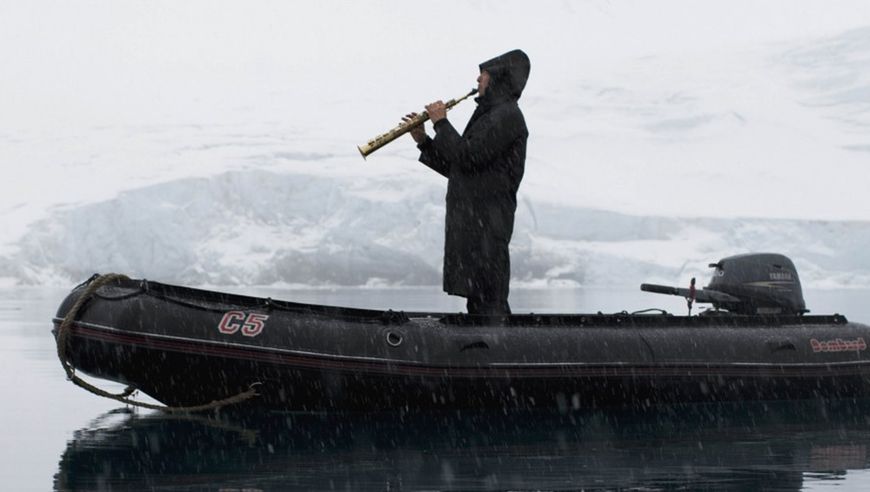On May 25, at 7 pm, the "Hybrid Encounters - Art Meets Science" will enter the second round. Under the triad of "Art, Biology and Algorithms", the artist Tomás Saraceno has invited guests from different disciplines to talk about what we can learn by analizing spider colonies. The discussion is supplemented by the "Arachnid Jam Session", a performance by the musician David Rothenberg with a spider.
David Rothenberg seems to play music with literally everyone – weather it be fellow jazz musicians like Marilyn Crispellwith or Lucie Vítková, technology guru Jaron Lanier, nightingale birds, cicadas or whales. He is also a naturalist philosopher and professor at the New Jersey Institute of Technology and explores the intersection of humanity and nature by his own means within the medium of musical sound. Technology is a big field of interest of his, because, has he puts it, it changes our ideas about nature.
For Rothenberg, sounds that animals produce not only roughly resemple human music, or are sources of inspiration for human mimetic production – but have musical qualities themselves. In exploring this thesis, he does not shy away from scientific discourse, confronting his aesthetic approach to bird or bug sound with rational research. For scientists, the sonic queues, David plays in close proximity of birds, are simply interferences, that irritate the animals and sometimes give rise to irrational responses by them – science label them corruption of statistics, while Rothenberg interprets them as genuine responses within a shared medium.
This provocation – transposing the aesthetic category of music into a field of rational research – seems to resonate with a lot of listeners and readers of his. The medium of music, in his understanding, connects different species and enables the possibility for a sort of communication that hinges only on the precondition of a shared living and creative activity. In order to make this connection plausible, he uses a broad definition of music, defined simply as performed sound, that is organized within recognizable patterns and rhythms. Under this condition, by bracketing the long history and refinement of human music, his performances begin to make sense as an attempt at giving music a cosmological undertone.
Rothenberg does not make an esoteric claim of having found the missing link between all living beings. His project can rather be valued as an exploration between the fields of art and science, as playful journeys at the boarders of human ways of making sense. The sense Rothenberg taps into is one that irritates, because it undermines the strict scientific distinction between a world of human rationality and natural material in need of categorization. What Rothenberg proposes is another form of rationality, foreign but not distinct from the one we know and itself able to engage in a dialogue. One could say, it is the artists own sense of ordering, projected outwards. He thereby pluralizes and distributes rationality, and asks, how far this thesis can be explored, before it loses all credibility.
We are very much intrigued by this idea and are looking forward to David Rothenbergs attemps at communication with an Arachnid Spider within the programme of our Hybrid Encounters #2!
- Benedikt

